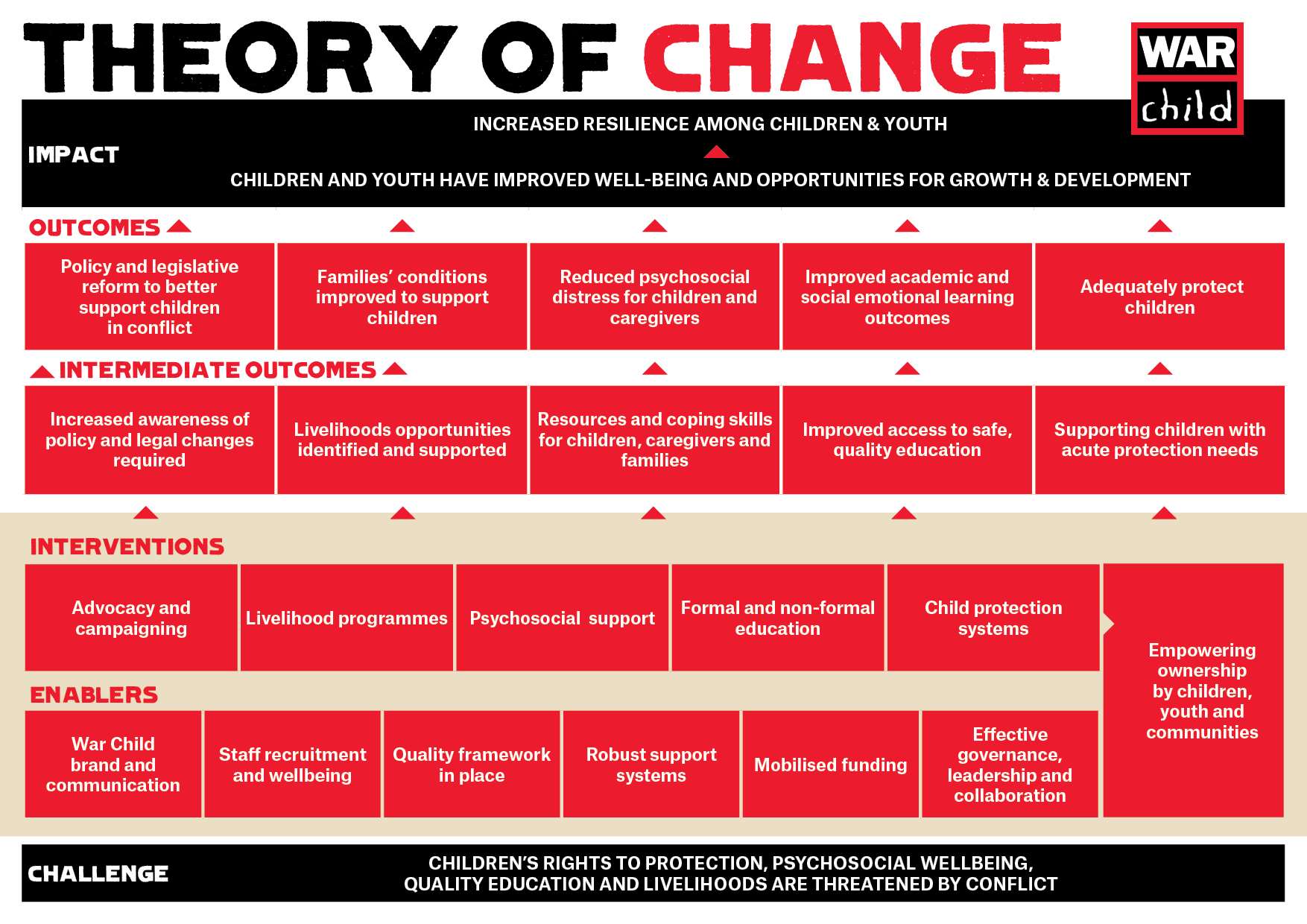Our Theory of Change
War Child has developed a Theory of Change (ToC) which guides the development and implementation of our Care System inside our countries of operation. The ToC helps us to identify the changes we want to bring about and examine how (and why) they are expected to occur within a particular context.
All elements of the ToC - and our programming worldwide - contribute towards two key impacts in the lives of children:
Increased resilience
Improved wellbeing
This process forms the basis for shaping the development, implementation and evaluation of each War Child intervention. It also provides a scientific framework to give focus to our efforts to bring about real change in the lives of conflict-affected children.

Collecting Evidence and Pushing Innovation
Significant progress was made in the development and evaluation of all nine Core Interventions over the course of the year.
The Caregiver Support Intervention - which supports parents and caregivers to strengthen positive parenting techniques - saw facilitator training concluded in Lebanon. A practice run of six sessions drew an equal number of women and men - some 60 caregivers took part in the nine-session programme in Tripoli. Activities will continue in 2019 with a full Randomised Control Trial.
Our Teacher Professional Development intervention entered the field for the first time with the completion of a practice run in Colombia. A pilot of the Community Case Detection Tool was launched in nine schools in the occupied Palestinian territories - to assess its efficacy in identifying children with severe emotional distress and exposure to protection risks.
An evaluation of Can’t Wait to Learn in Lebanon indicated that children made significant improvement in mastering elements of the school curriculum over a 12-week period. Five research projects in total - across Lebanon, Jordan and Sudan - were completed in support of the programme, involving more than 1,400 children.
The Community Case Detection Tool was also among the final interventions celebrated in the Spindle Awards for Best Humanitarian Intervention - a fantastic acknowledgement of our work.
Our academic research also increased in scale over the course of the year. October saw our research director Mark Jordans contribute to a major research paper on global mental health published in The Lancet.
War Child researchers also contributed a chapter to a major new academic publication - Mental Health of Refugee and Conflict-Affected Populations. The chapter - on our Care System in support of children and youth - presented our innovative research agenda to the world.